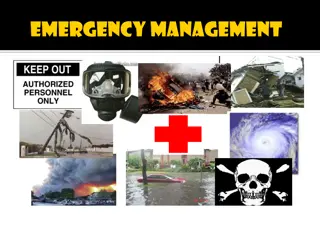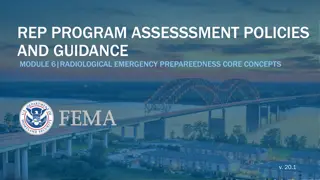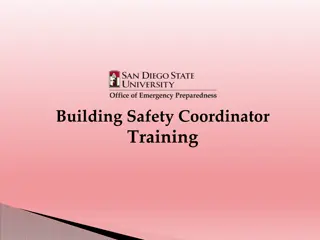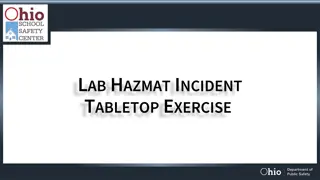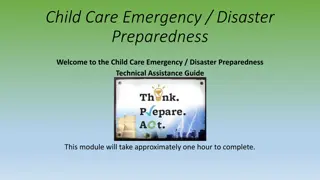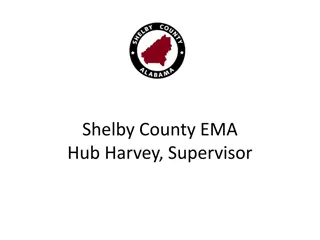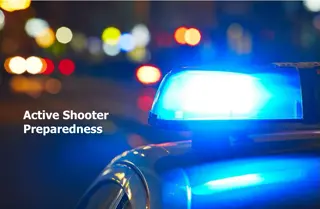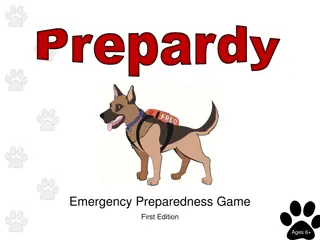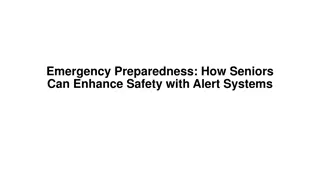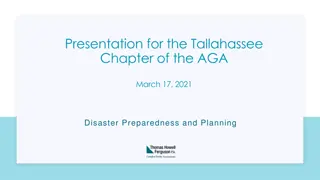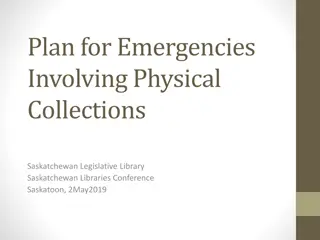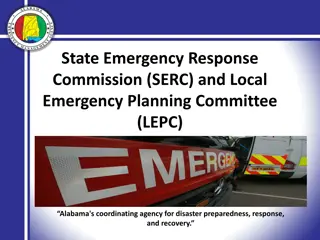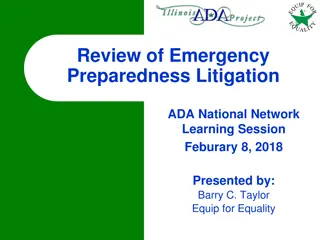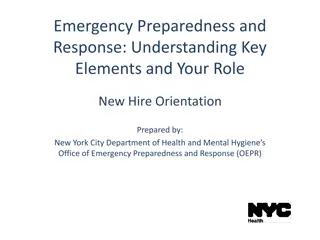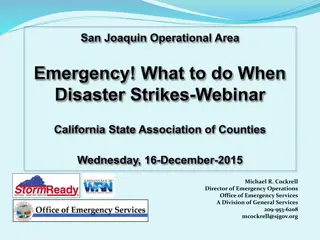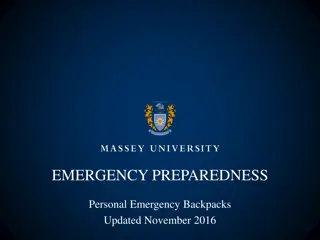
Effective Crisis Preparedness and Management Strategies
Prepare your business for crises by understanding the phases of crisis management, the importance of being proactive, and how to effectively manage a crisis. Learn why forming partnerships is crucial and how personal to professional transitions play a role in crisis readiness.
Download Presentation

Please find below an Image/Link to download the presentation.
The content on the website is provided AS IS for your information and personal use only. It may not be sold, licensed, or shared on other websites without obtaining consent from the author. If you encounter any issues during the download, it is possible that the publisher has removed the file from their server.
You are allowed to download the files provided on this website for personal or commercial use, subject to the condition that they are used lawfully. All files are the property of their respective owners.
The content on the website is provided AS IS for your information and personal use only. It may not be sold, licensed, or shared on other websites without obtaining consent from the author.
E N D
Presentation Transcript
PPIR reparedness
Phases of Crisis/Emergency Management Public Agencies Community Preparedness Mitigation Response Recovery Plans are made in anticipation of incidents occurring. This is done through collaboration, training, exercising, and securing resources. Assessing threats and vulnerabilities and then taking the steps to eliminate or reduce their potential risk. Ensuring activities and actions are formulated to protect property, people, information, and reputation. The process of repairing vital life systems and bringing governmental and social infrastructure, back to a normal level. Businesses Non-Governmental
Prepared vs Unprepared Average crisis-prepared business: 21 emergencies Less prepared ones faced with 33 crises 36% Average lifespan - prepared business was 83 years Less prepared was only 67 years 24% Average return on assets for proactive companies was 6% Less prepared was 3% 100% At best, 75% of companies not prepared to handle an unfamiliar crisis Per Harvard Business Review Article Preparing for Evil (Mitroff & Alpaslan) 04-2003
Managing a Crisis Anticipating/being prepared for a wide variety of crises Picking up/amplifying those early warning signals that accompany all crises Forming and training crisis management teams Instituting damage control mechanisms in advance of the occurrence of crises to limit their spread Auditing one s corporate culture for values, which hinder effective crisis management Including diverse stakeholders in one s crisis plans and procedures Per Harvard Business Review Article Preparing for Evil (Mitroff & Alpaslan) 04-2003
Why Partnerships? Problem solving can be more effective and efficient when one person, one government, one business, one community or one is willing to reach out to others!
Broad Partnerships Economic, health, education, environmental, governance, social needs, legal, financial, infrastructure, along with other national, regional or community projects Specific Partnerships Partnership for Community Safety, Security and Economic Vitality The steps used to build a partnership are universal, regardless of the purpose or mission 1. Identify public and private leaders (shared-leadership) 2. Ask leaders to bring others to the table 3. Identify common issues in emergency preparedness 4. Identify potential resources in the community 5. Determine the challenges that organizations encounter 6. Create sustainability in the partnership through a needs assessment, setting goals, task performance, and collaboration
Personal Actions - What Can I Do? Make sure you and your family know what to do in case of emergencies and disasters: Make a Plan Be Informed Get a Kit Water & Food First Aid Kit Portable Kit Supply Checklists Special Needs Items Natural Disasters Explosions Biological Threat Chemical Threat Nuclear Blast Radiation Threat Deciding to Stay or Go At Work and School In a Moving Vehicle In a High-Rise Building Check out www.ready.gov for details and additional info
Personal Actions During A Crisis Stay Calm Take a Breath Slow Down! Short-Term Questions: What am I Doing? Why am I Doing it? Long-Term Questions: What do I Have? What do I Need? Focus on the Basics!
Preparedness! It is not often that a man can make opportunities for himself. But he can put himself in such shape that when or if the opportunities come he is ready. Theodore Roosevelt Thank You

